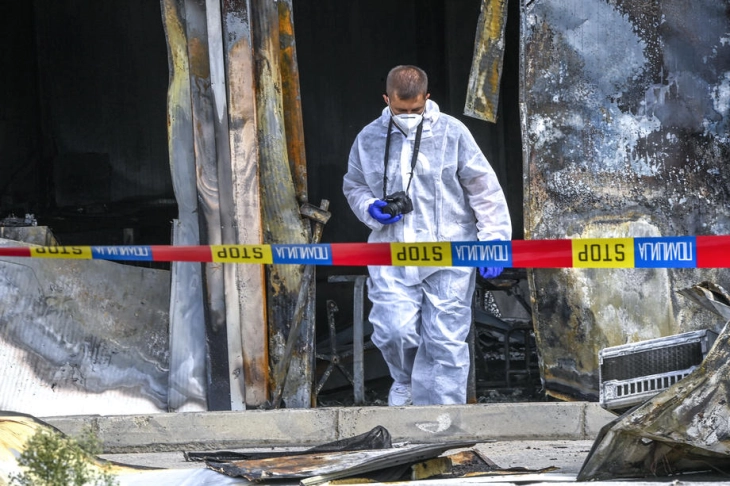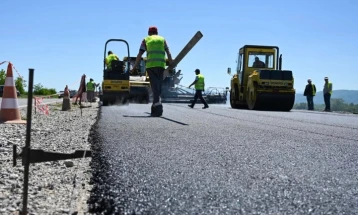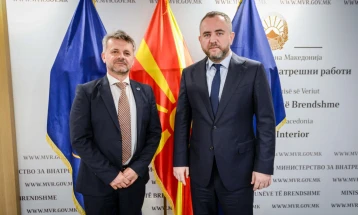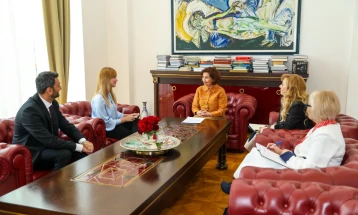Sensationalist reporting worsens mental health, affects public trust in institutions

Skopje, 3 October 2021 (MIA) – To experience an incident or tragedy is stressful in and of itself, and sensationalist reporting further exposes the affected parties to prolonged stress, affecting their mental well-being and their trust in institutions. When one loses a loved one, their emotional pain is immeasurable, and when the case is presented through the media’s unethical prism, it gets worse.
Natka Pachoska, specialist of medical psychology, European certified gestalt and family system therapist, says that losing a loved one causes feelings of guilt and responsibility. Oftentimes, people who have lost a loved one also feel anger and unrighteousness, especially when their loved ones die in accidents or when they pass away suddenly. That anger gets stronger when it has something to latch onto, i.e., when someone can be considered responsible for their loved one’s death. Anger serves to channel the strong sense of pain and sorrow due to the loss.
“When media outlets report in a sensationalist way, these feelings get stronger and directly affect the bereaved ones’ mental health. When videos get posted on social media, or while covering the incident on the news, where the ongoing tragedy can be seen or sounds of screaming or voices can be heard, like it was during the Tetovo modular hospital fire, then the families and the people the deceased were close to, among which there are children, can have devastating consequences to their mental health,” Pachoska says.
She says that the mixture of emotions such as sorrow, guilt, anger, fear and injustice and reduce a person’s emotional capacity to deal with difficult, stressful situations. It can also cause them to have a less levelheaded approach to reality, or exacerbate depression, anxiety, panic, destructive or self-destructive tendencies etc.
Pachoska says that sensationalist reporting constantly exposes people who have been exposed to accidents and who have been injured to further stress. Reliving the stressful event overloads their emotional capacity and defense mechanisms, and it worsens their psychological condition, becoming one of the factors that leads to the development of PTSD.
Reporting of incidents has to be sensationalism-free
According to the Journalists’ Code, media outlets are obligated to abide by Article 1 which states that “a journalist must publish accurate, verified information, and should not hide key information and forge documents. If the information cannot be confirmed or it is speculation, it should be noted. The truth of the information should be checked as much as possible”, especially when it comes to information which relates to the loss of human lives. Articles 7 and 8 should be observed when publishing explicit photographs and videos, which state that “the way of reporting of accidents, natural disasters, wars, family tragedies, illnesses and court proceedings must be free of sensationalism”, i.e., “the journalist will respect the person’s privacy, except when it clashes to public interest. The journalist is obligated to honor personal pain and grief”.
Katerina Sinadinovska of the Council of Media Ethics (CMEM) highlights Article 1 as the main principle of reporting loss of human lives and tragedies. She says that the temptation of sensationalism should be avoided when it comes to processing and placing information.
“One thing we can see that’s very difficult in the era of the expansion of web-portals, when the goal is to get as many clicks as possibly, is to distinguish between disasters in which the deceased are people who are not public figures, or the deaths of public figures caused by natural causes, accidents or suicide. Different schools of journalism have different attitudes about how much is permissible in terms of publishing photos, and where the limit of privacy is,” Sinadinovska says.
She says that the attitudes of the ethics councils in Europe, aligned through the Alliance of Independent Press Councils of Europe (AIPCE), where the CMEM is a full-fledged member, coincide when it comes to victims who have not been exposed to the public through their work before, their privacy should be respected and their relatives’ grief should be honored.
She reminds of the loved ones’ reactions regarding the Tetovo tragedy, noting that Articles 1,7 and 8 were not observed.
“The number of victims was speculated, which is forbidden when it comes to accidents, and it wasn’t said once that it was just speculation. Sensationalist photos and videos were put into circulation without taking the families’ personal pain into account,” she says.
Sinadinovska also says that they often get reports that journalist standards get broken when it comes to reporting about the loss of human lives, accidents and tragedies, and these reports happen every time such accidents took place.
Bojan Kordalov, communicologist, PR and new media specialist, says that all journalism principles should be followed, especially when it comes to protecting the victims’ identities and their families’ integrity.
“Public interest should be the predominant factor when it comes to reporting accidents. Each piece of information should be double-checked, accurate and fully credible. It’s necessary for the media to be fully involved and track the course of the investigation for every accident, because the public that the media represents is the best guarantee that an objective, impartial investigation will be conducted, which will fully track legal action,” Kordalov says.
He believes that the media shows a high degree of awareness, standards and honoring all rules when it comes to crisis reporting in North Macedonia, pointing out the Tetovo case as an example. Sometimes, under the influence of political structures, part of online media prioritizes the sensationalist moments, consciously or unconsciously painting these crisis moments with political hues.
Sensationalist reporting during tragedies and accidents undermines the people’s trust in the institutions
When asked if the institutions follow these standards, Sinadinovska says that their press releases are often outside of these high standards, which doesn’t concern her as much because they’re always processed by a journalist in a professional newsroom.
“Institutions must be fully transparent. When disasters happen, there have to be constant relations with the public, press conferences, even a 24 hour press center so that institutional information can be set up, as well as an opportunity for the press to ask questions in the name of the citizens, among other things, and to challenge the institutions’ official attitudes, which must be left open to be the subject to journalist interest, whether they get further explained, simplified, or denied, if those are the journalists’ tendencies,” Sinadinovska says.
She says that even if the authorities don’t have all the answers initially, it’s important for them to present themselves to the public and show that they will approach the accident with maximum respect to the public and the citizens, and to their basic right to correct information.
Kordalov agrees, saying that the institutions have shown that they can and must work much better in media relations.
“In times of crisis, it takes reorganizing in a so-called crisis system of information, which entails constantly updated media information and an uninterrupted permanent access to all other information. It’s especially important for politicians to learn that there is no such thing as information that should be shared with the public primarily through social media. On the contrary, the road to informing the public in such times of crisis goes primarily through the media, through using their services for timely, accurate and credible reporting,” he says.
Kordalov says that sensationalist news and unchecked information regarding the loss of human lives, accidents and tragedies, affects the audience, the victims’ families and the public opinion negatively.
“It’s primarily for the victims’ families and loved ones, and additionally, emotional coloring and dividing the public opinion. Every tragedy or accident is great and unwanted. But, will we be able to learn our lessons so that these things don’t happen again? This largely depends on the way of reporting, and especially the roles of the politicians and public institutions, i.e., their capacity and ability to build partnerships with the media,” he says.
Sinadinovska shared her experience from the latest tragedy, saying how her inbox was overflowing with messages from the public, of people disgusted by the way of reporting, and demands for the CMEM to react to stop the spread of explicit photos of burnt bodies.
“It wasn’t just the families and friends; the citizens were traumatized too. Let me quote a message from one of them: ‘Have we all gone crazy in this country? Is there anyone who can take down these videos from Facebook? How can such things be posted? What were they thinking? I will never be able to forget what I saw. Zero respect to the deceased. I know that you as a journalist will likely protect your colleagues, but this is hurtful and traumatic,” Sinadinovska says.
She says that if the media wants to show the scope of the disaster through photos, there is always the option to cover them, or at least put up a trigger warning for upsetting videos or images.
Pachoska says that this way of reporting seriously undermines people’s trust in the institutions.
“Especially with the fire that occurred in the modular hospital, the population can become afraid of being treated in a hospital, come to check-ups late, which could lead to an increased spread of Covid-19. Also, there are modular hospitals in multiple cities throughout Macedonia, and the people who have been infected, who have a severe case, can refuse to be hospitalized due to fear and feeling in danger from the conditions in modular hospitals,” she says.
Pachoska says that the best way to protect the affected people and the population from the influence of this information is limited exposure to this type of information, sharing their emotional conditions with experts, or when they’re mildly destabilized, talking to loved ones, taking long walks, and learning techniques to reduce stress and anxiety.
Regarding the prevention of the consequences of the pressure and public exposure, she says that psychological help and support should be given to the people who were affected. The people and families that lost loved ones should be given psychological help, and the media should provide positive content from current happenings on a local community level, so that institutional trust can start returning on a national level.
Angela Rajchevska
Translated by Dragana Knezhevikj







